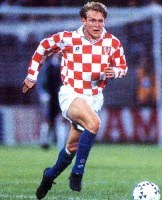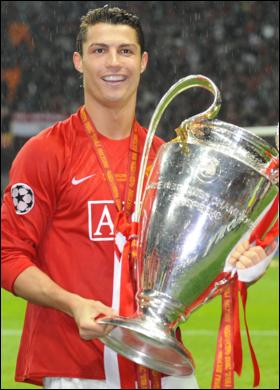
If in some cases these players have an emotional connection to the country for which they became naturalized, in other cases that no longer happens.
At a time when it is quite normal for football clubs to field foreign football players, clubs like Athletic Bilbao from Spain and Hrvatski Dragovoljac in Croatia, go against the grain in their insistence on fielding only local players.
However, when it comes to most national teams, the acceptance of foreign players is viewed differently, when they include players that can only be described as nationals in a very loose sense.
Yet this is not a recent trend and in fact the practice had been going on prior to World War II as is the case of the German team that absorbed the best Austrian players and even forced Ernst Wilimowski of Poland into its squad during the occupation of Poland.
Before the 1934 World Cup, Italy naturalized a number of fantastic South Americans of Italian descent, like Demaria, Orsi, Monti, and Guaita who helped the "azzurri" win the World Cup against Czechoslovakia.
Ferenc Puskas became a Spanish citizen after the bloody Soviet invasion of Hungary in 1956. Spain also gave passports to another Hungarian Ladislav Kubala, as well as the Argentinian national Alfredo Di Stefano who was of Italian descent. More recently, Donato Silva of Brazil represented the Spaniards.
Picking naturalized players for national teams knows no borders.
The World Cup 2010 in South Africa will have many players that were born in one country but chose to represent another. In many cases they came from former colonies, a situation quite common in the French team that won their only world title with the precious help of players born in former French territories.
Would "Les Bleus" have been so successful without great African players like Zinedine Zidane (Algeria), Patrick Vieira (Senegal) or Marcel Desailly (Ghana), Caribbean Islands reinforcements like Lilian Thuram and Thierry Henry (Guadalupe) or Christian Karembeu (New Caledonia in the Pacific Ocean) as well as Robert Pires (Portugal) David Trezeguet (Argentina), Youri Djorkaeff and Alain Boghossian, both from Armenia? It looked more like a World XI team that brought the World Cup and European Championships trophy home, to France. Michele Platini one of the best French players of all time was Italian.
Germany soon filled the absence of Klinsmann, Bierhoff and Kirsten when they retired. Players like Rink and Cacao (Brazil), Bobic (Slovenia), Dundee (South Africa), Neuville (Switzerland), Asamoah (Ghana), Mehmet Scholl (Turkey) Kurany (Brazil) as well as Littbarski, Klose and Podolski (from Poland). Poland's national team has also adopted Emanuel Olisadebe of Nigeria.
Holland started using many fantastic players like Clarence Seedorf, Edgar Davids, Ruud Gullit, Patrick Kluivert, Frank Rijkaard, Pierre van Hooijdonk and Aaron Winter just to name some of the best, all from Surinam, a former Dutch colony in South America. Philip Cocu was French but played for the Orange team.
Despite being a recurrent process, FIFA has been battling to reverse the growing trend of naturalized players. Some measures however, have been taken to change things in the right direction.
FIFA has increased from two to five years the time required in which the player must live in a country, before beginning the process of naturalization. There is also the requirement that the player had never represented his nation of origin, including at youth level.
Some of these players will participate in the 2010 World Cup in South Africa. You can read the Full article about the Naturalized football players here [http://2010-southafrica.com/news-of-interest/born-in-one-country-and-playing-for-another/].
Gil Santos is the author and the owner of a Soccer website that provides news and information about South Africa and the 2010 World Cup [http://www.2010-southafrica.com]


